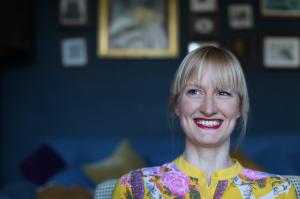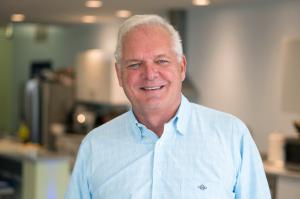Amy Merrywest and Steve Richmond Discuss Impostor Syndrome with Candice Georgiadis
Amy Merrywest, founder and director of two companies https://amymerrywestconsulting.co.uk/ . Steve Richmond, founder of Projetech
The issue of impostor syndrome in the global market is extensive, touching people from all walks of life. Amy Merrywest, founder and director of two companies https://amymerrywestconsulting.co.uk/ and Steve Richmond, founder of Projetech, expand on their own personal experience with the syndrome in interviews with Candice Georgiadis, some excerpts of each are below. Using her extensive social media and conventional website marketing skills, Candice Georgiadis helps companies and individuals reach new clients, bring exposure to issues, etc. You can get help from Candice Georgiadis by reaching out to her using the below contact options.
-
Amy Merrywest, founder and director of two companies https://amymerrywestconsulting.co.uk/
In your opinion, what are 5 steps that someone who is experiencing Impostor Syndrome can take to move forward despite feeling like an “Impostor”? Please share a story or an example for each.
Look at themselves through the eyes of a friend.
If a loved one was experiencing Imposter Syndrome, we know it is likely that they are looking at themselves in an unrealistic and negative way and naturally we would see the best in them and help them through it.
I would ask them to look after themselves in the same way that they would for a friend and realise that they are thinking too harshly.
We are all still learning.
I am often told by my clients that they do not feel knowledgeable enough to do their own PR. But I explain to them that nobody is expecting them to be the best at it all — I am not teaching them to be head of public relations for Alan Sugar, I’m just teaching them how to do their own PR.
Look at others more realistically.
If you take a look more closely at someone you are comparing yourself with, try and think about them and their life more realistically.
If they are on Facebook talking about the 6 figures they just made, do you think they would also share the story about the two failed businesses that had before their success? Probably not.
This does not mean that they are not successful because they are, but it just goes to show that they are human, just like you and I.
There will always be something that you know that someone else does not.
So you might not be an expert in Facebook advertising, but you know a thing or two about social media content. Don’t give yourself such a hard time for not knowing absolutely everything because you have plenty of knowledge that others might not.
Practice not giving a hoot.
Try practicing some mindfulness and CBT to help reframe your thoughts. It might mean that you are able to let go of your inhibitions a little and stop worrying so much about what you are doing. Try and enjoy the ride. Read more about impostor syndrome and Amy Merrywest here.
-
Steve Richmond, founder of Projetech
How would you define Impostor Syndrome? What do people with Imposter Syndrome feel?
I think young companies are faced with this often. It’s difficult, for example, to justify hiring a very young consultant because they may or may not have the level of experience you might need depending on your challenges or the area of expertise you require. So both of you may end up questioning your roles and abilities. The parallel also works when you just talk about size, if you’re a two or three-person company and you’re trying to sell a service to a multinational, it’s very difficult to be taken seriously.
A lot of smaller companies feel that they need to overcompensate, through elaborate websites or titles, trying to look bigger through things that give the impression that they’re a bigger organization, when this isn’t necessarily needed.
How can the experience of Impostor Syndrome impact how one treats others?
I always try to take people for what they are. Even though a company might be small, or they might be relatively inexperienced, if there’s an opportunity where we can collaborate or where I could make use of their expertise, I go for it.
I feel, having grown a small business, that I have some level of wanting to give back and allow those people the opportunity to take a little bit more rope than somebody else might have given them.
We would love to hear your story about your experience with Impostor Syndrome. Would you be able to share that with us?
When we were younger and smaller, there were oftentimes where we would hit the wall with negotiations because of the size of the business. Well, both in size and experience. It’s just hard for a large company to take a small one seriously, or hard for an important project to be handed off to a rather young inexperienced resource. And this can be demoralizing but it can also be the fuel or motivation needed to succeed.
Did you ever shake the feeling off? If yes, what have you done to mitigate it or eliminate it?
If I can help someone along, and it’s not really risky, there’s nothing wrong with letting somebody fail and picking them up and moving them forward. Failures are just great little learning opportunities. It’s all it is, really.
You always have somebody apply for the job and you’re looking for experienced, and they don’t have any experience but they want the job and its challenges. Until somebody gives them that opportunity, they’re never going to have the experience. So, at some point, somebody has to be willing to take that chance. Complete reading the interview here.
Be sure to reach out to Candice Georgiadis to get your social media marketing on the right track. You can reach her at the below contact options.
About Candice Georgiadis
Candice Georgiadis is an active mother of three as well as a designer, founder, social media expert, and philanthropist. Candice Georgiadis is the founder and designer at CG & CO. She is also the Founder of the Social Media and Marketing Agency: Digital Agency. Candice Georgiadis is a Social Media influencer and contributing writer to ThriveGlobal, Authority Magazine, and several others. In addition to her busy work life, Candice is a volunteer and donor to St Jude’s Children’s hospital.
Contact and information on how to follow Candice Georgiadis' latest interviews:
Website: http://candicegeorgiadis.com/
Email: CG@candicegeorgiadis.com
LinkedIn: https://www.linkedin.com/in/candice-georgiadis-34375b51/
Twitter: https://twitter.com/candigeorgiadis @candigeorgiadis
Candice georgiadis
candicegeorgiadis.com
+1 203-958-1234
email us here
Visit us on social media:
Twitter
LinkedIn
Legal Disclaimer:
EIN Presswire provides this news content "as is" without warranty of any kind. We do not accept any responsibility or liability for the accuracy, content, images, videos, licenses, completeness, legality, or reliability of the information contained in this article. If you have any complaints or copyright issues related to this article, kindly contact the author above.



